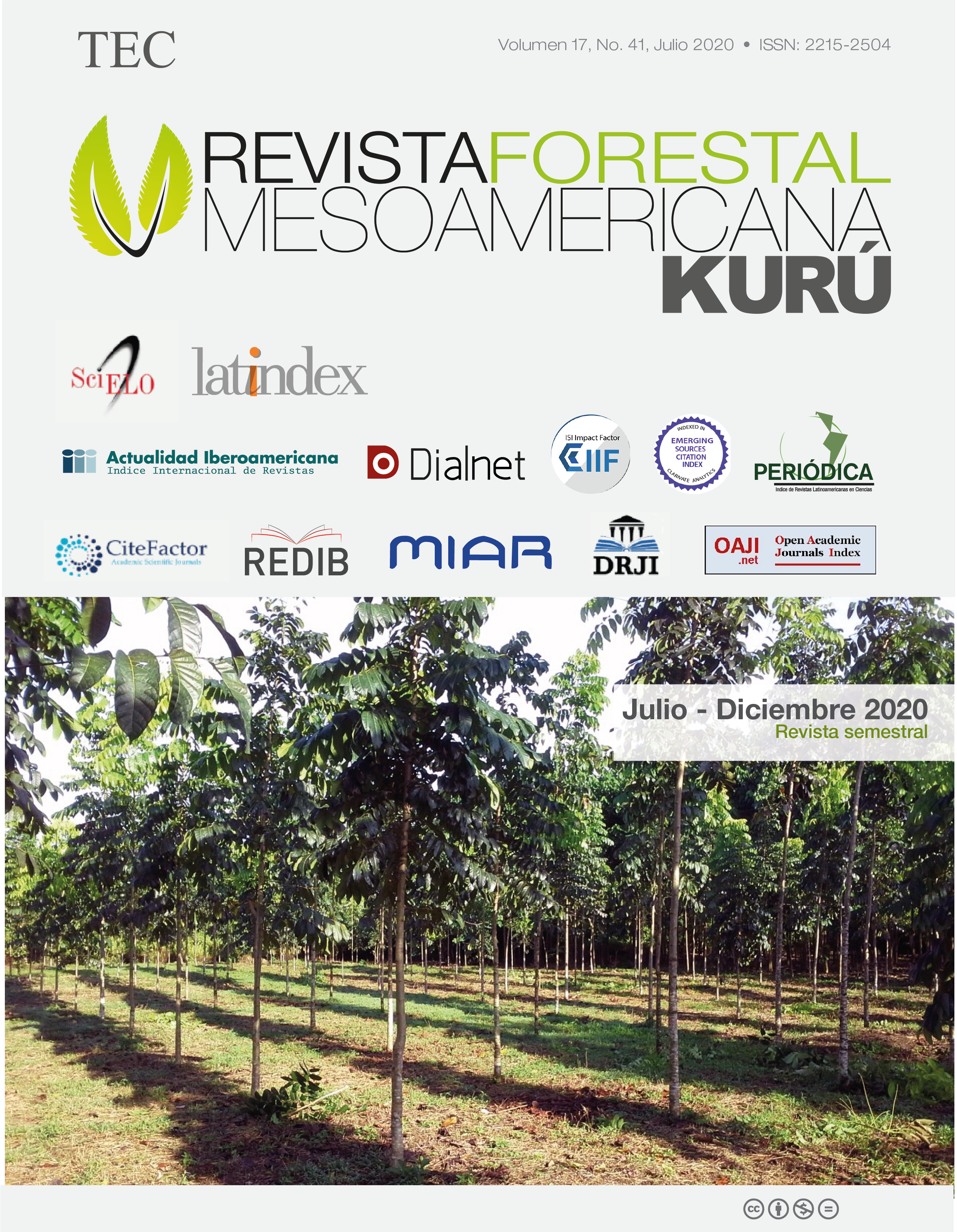Early selection of mahogany clones (Swietenia macrophylla King) in agroforestry systems
Main Article Content
Abstract
In Costa Rica, producing wood in pure plantations has become less competitive compared to other land uses. Establishing timber species through agroforestry production systems emerges as an alternative to make forestry a profitable activity. Mahogany has been proven in a wide variety of agroforestry systems. The identification and use of genetically superior material for different places or areas contributes to significantly increase the growth rates and the quality of the generated products. The objective of the present investigation was to select clones that register superior performance in two evaluated conditions, with the consequent increase in yields per unit area. Two clonal trials of mahogany under different site conditions were evaluated at three years of age, to select the genotypes with the best performance in total volume. At site Venecia, average growth in dbh for the clonal set was 9.3 cm*tree-1, which represents a MAI of 3.1 cm*tree-1*year-1 at 36 months of age. Clones 3, 98, 1, 78, 52 and 5 were identified to continue in the genetic improvement program for this site. Their use would generate an average volume at 36 months of 0.0399 m3*arb-1. At site Santa Lucía, a MAI of 1.8 cm*tree-1*year-1 was recorded, 58 % lower than site Venecia. Clones 96, 21 and 57 were identified to remain in the breeding program. The remaining clones should be discarded for commercial reforestation, but kept in germplasm banks for future purposes.
Article Details

This work is licensed under a Creative Commons Attribution-NonCommercial-NoDerivatives 4.0 International License.
Revista Forestal Mesoamericana Kurú is licensed under CC BY-NC-ND 4.0
Al enviar un artículo a la Revista Forestal Mesoamericana kurú (RFMK), los autores ceden los derechos patrimoniales a la editorial de la RFMK una vez su manuscrito haya sido aprobado para publicación, autorizando a la RFMK a editarlo, reproducirlo, distribuirlo, y publicarlo en formato físico y/o electrónico. La titularidad de los derechos morales sobre los trabajos objeto de esta cesión seguirá perteneciendo a los autores.

